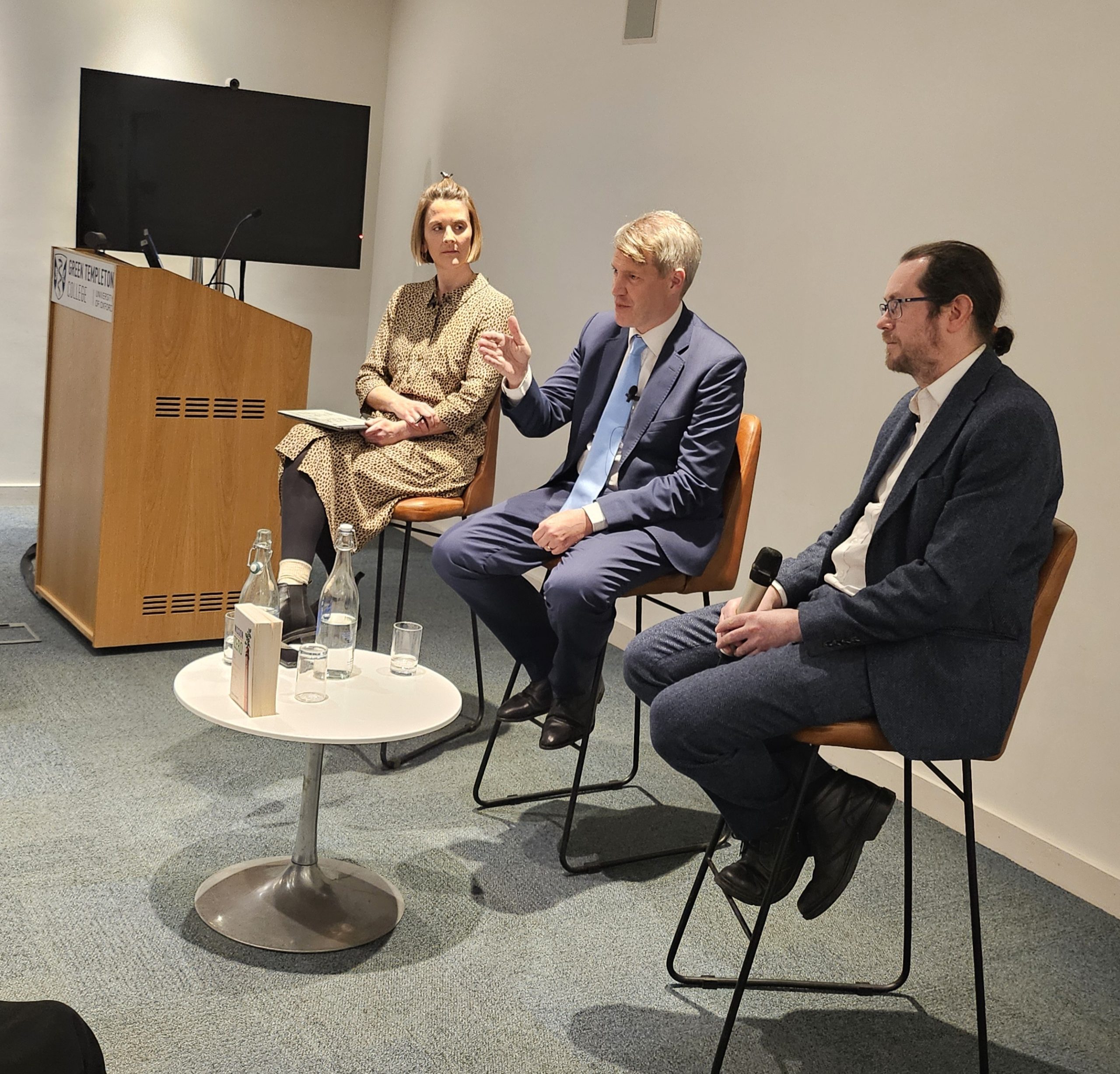Taking sustainability out of the culture war

Green Templeton student Megan Jenkins (MPhil Social Anthropology, 2024) reports on the second Green Templeton Lecture on Thursday 27 February.
The second of Green Templeton’s annual flagship lecture series on Sustainability Education focused on the theme of ‘power and politics’. The keynote speaker was Chris Skidmore, former member of parliament from 2010-2024. He was Minister of State for Energy and Clean Growth from May to July 2019, during which time he signed the UK’s Net Zero pledge into law, making the UK the first major global economy to ratify such a commitment.
Skidmore resigned from his position over the Offshore Petroleum Licensing Bill in 2024 due to, as he explained it, its bureaucratic bloat and backtracking on the UK’s movement away from fossil fuels and toward renewables (this garnered applause from the crowd in his introduction). He started the talk by speaking on the challenges of pushing Net Zero through law, and of enacting green policies in democratic states more broadly. He offered the room an insider’s view of the process of passing climate policy through law in the UK, and the difficulty of negotiating the line between speaking and acting on climate promises.
Following the theme of Sustainability Education, much of the speech and indeed the subsequent questions were focused on communication and persuasion. How do you get people to vote for green policies? To change their behaviour? Does responsibility for the future of sustainability lie with the individual consumer? Skidmore insisted that much of the movement on the supply-side of sustainable energy infrastructure has been made, and that the focus needs to shift onto the demand side, changing consumer behaviour and preferences. Furthermore, suggesting that the key to garnering both investment and popular support for these policies was to insist on their ultimate economic benefit, he argued that investment in green technologies and net zero was the path toward economic growth as well as a lower-carbon future. In other words, even if it weren’t for the environmental benefits, decarbonisation would be the right choice for market growth.
The audience offered diverse perspectives in their questions and comments on the future of green politics at local and national scales, and there was a particularly interesting discussion of the need for the empowerment of local authorities in the UK to achieve meaningful environmental protection at a community level.
Responding to Skidmore was Debbie Hopkins, a professor in the department of Geography and a fellow of Kellogg College. She spoke about the potential of lifelong learning, and the necessity of keeping these kinds of conversations open beyond academic contexts and the esoteric guarding of knowledge in institutions. Both Skidmore and Hopkins mentioned the recent US elections and Donald Trump’s withdrawal of the US from the Paris Climate Agreement. This is a moment, both seemed to suggest, when the very ground on which such debates are occurring is rapidly changing. In the face of this discourse and the fear it tends to provoke, both were emphatic that our eyes must remain focused on the future and yet our feet grounded in the present; not only that positive change toward a sustainable future is possible, but that our faith in it is imperative to its success.
Both speakers insisted that climate change does not have to be the kind of culture war issue it has become — and in fact, the greatest challenge for politicians and rhetoricians who care about these issues is to be able to communicate to as broad a political audience as possible that these are issues that concern them, their livelihoods, the communities they inhabit, and the integrity of the material world in which they live. One of the most curious features of the climate crisis is the way in which it messes with the scales of the local and the global and in turn people’s perception of their place vis-à-vis others. The challenge now lies in how to communicate this in a way that inspires action, rather than despair. These themes will be picked up and expanded upon in the final lecture of the series next Thursday 13 March, which is on the theme of ‘hope and humility’.

